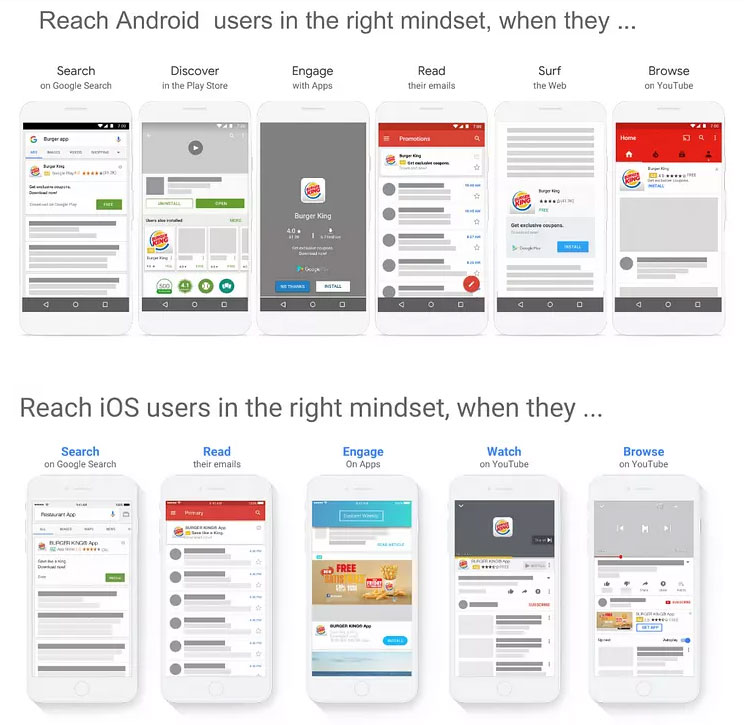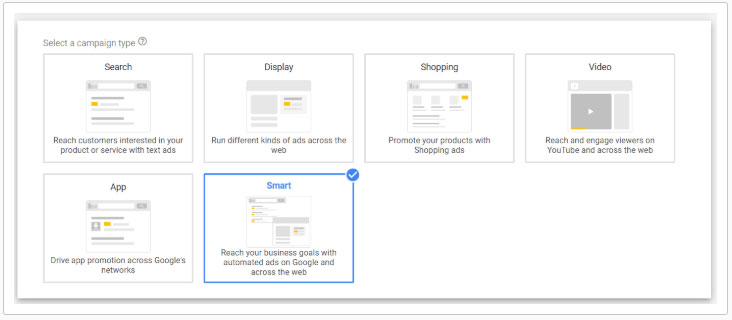In our last post, we talked about the ever-changing nature of search marketing and the importance of an always on Organic Search strategy. Today we will cover the other side of the search landscape – Paid Search – and one of the biggest changes happening in the industry that you will want to pay attention to as you plan your strategy for PPC advertising.
PPC Automation
Since the introduction of Smart Bidding in 2016, Google has been investing millions of dollars in developing automation and artificial intelligence that helps companies drive better ROI from their Paid Search investments. You may have heard terms like ‘Automated Bidding’, ‘App Campaigns’, ‘Smart Campaigns’ or ‘Dynamic Search Ads’. All of these are enhancements that Google has added to Google Ads to make Paid Search campaigns easier to manage and, hopefully, more effective. Do keep in mind – Google is obviously interested in seeing companies spend more money on search advertising – so it behooves them to make their platform as easy to use, effective and efficient as possible – and these automations largely do that.
Each of these automations – and several others that I haven’t mentioned – allow Google’s system to perform many of the functions that used to require a team of search marketers and hours and hours of care and maintenance.
- Automated Bidding leverages algorithms that use machine learning to drive better outcomes in every auction. All you do is tell Google the goal of the campaign and your daily budget and the AI does the rest. There are multiple bidding strategies available including maximizing clicks, achieving a target cost-per-acquisition, achieving a target return on ad spend and maximizing total conversions. For resource constrained organizations or for large enterprises with complex paid search programs with many locations and keyword variants, smart bidding can be a real advantage. There are multiple disadvantages as well, however. Google is optimizing at the time of each individual auction and, as such, you may notice a high amount of variability in your bids. At times, they may even be much larger than you’d ever set them via manual bidding. For this reason, advertisers with lower budgets or those that are managing to marginal profitability may not want to use Smart Bidding. Additionally, automated bidding runs off historical data – using it to predict future performance. If you don’t have good historical data or if your data is sparse, automated bidding may not be appropriate for your business.
- App Campaigns, formerly known as Google’s Universal App Campaign (UAC), allow mobile app developers and marketers access to drive downloads and mobile revenue via ad inventory from across the entire Google ecosystem – Search, Google Play, YouTube and GDN.

App Campaigns are highly automated, using text and images you have in your app store listing to create elements for your ads. There are a few basic things that must be provided when campaigns are initially created – some basic ideas for the campaign, some video elements (for YouTube), etc. – but setup is quick and easy. Google’s AI then creates combinations and permutations of the ad, mixing visual and text elements and then optimizing to the ones that perform best. Bidding is automated and ads will run across all of Google’s channels based on where performance is best. Campaigns goals can be set to drive maximum downloads, drive in-app actions or generate maximum ROAS (typically some percentage of revenue per install). These paid ads work for both iOS and Android and, in our experience, work well – particularly for advertisers that are looking for sheer volume of downloads. Designers and marketers of more complex apps may find that app download campaigns drive high numbers of downloads but relatively low app usage. In those instances, ROAS or in-app action campaigns are likely a better solution.
- Smart Campaigns were introduced in early 2018 at the same time that Google rebranded from AdWords to Google Ads. Building off of the product formerly known as AdWords Express, Smart Campaigns are designed to make Paid Search easy for small businesses that would otherwise not buy search because of the time and expertise required to manage the complexities involved.

Source: Hootsuite
For experienced marketers, Smart Campaigns may actually be TOO automated for your liking. But – for small and local businesses with limited time and manpower, they offer an easy way to grow revenue and exposure. Once a campaign is set up, the entire process is automated – everything from ad creation to targeting and optimization to landing pages (yes – Smart Campaigns create auto generated and optimized landing pages from small and local businesses that do not have websites). Google purports to drive results for advertisers by using multiple signals including user behavior, device and location to then show ads to the right audience across all their channels. As mentioned, experienced marketers will likely find Smart Campaigns a bit too simplistic and may want more control over where and how their ads run. That said, for those that are looking for a quick and easy solution, this type of automation may be your best option.
- Dynamic Search Ads are nothing new to the PPC industry, having been around since late 2011. Historically, dynamic ads were created using Google’s organic search technology that crawled your website and expanded your PPC coverage by dynamically creating ads for keywords and queries that were relevant for your website but not covered by your current keyword set. Today, Dynamic Search Ads no longer use keywords at all. Instead, Google’s technology crawls your entire website and organizes content into categories based on what is offered on your site. When a searcher types a query that is relevant to your site’s content, Google dynamically creates an ad with relevant headlines and details and matches it to the appropriate landing page. Ad creative is auto optimized to serve the most effective ad variants and machine learning kicks in with suggestions on how to improve ad performance based on historical results. Google’s tools will recommend changes to everything from headlines to ad extensions to landing page information.
Dynamic ads can be a powerful tool in the hands of an experienced search marketer. In our experience, there are a few specific types of accounts that can derive maximum benefit from this automation – brands with multiple branches in a single location where budgets can be stretched thin and account setup and structure can be complicated and brands with extensive product lists that include some that may not get significant volume and might otherwise be deemed ‘low search volume’ by Google (meaning ads may not show). No doubt there are other good use cases for this technology – but, as mentioned, these are best used by experienced search marketers. Campaign structure, budget pacing and mismatched ad copy and headlines have all been cited as issues advertisers have experienced with this product.
As we’ve demonstrated, change is just as prevalent in PPC as it is in SEO. Organizations would be well served to stay on top of the new products and tools Google (and others – Bing, Amazon, Facebook to name a few) are introducing to both simplify things for advertisers and to derive more revenue from ad spend. If you need advice or help from a team of experienced search marketers, give New Media Advisors a call. We have been operating in this space for more than a decade and can help ensure that your investment is providing the ROI and performance you want and expect.





